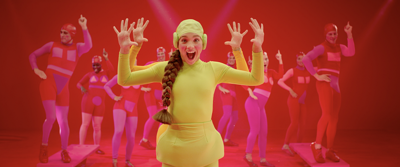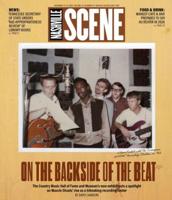
Since the release of last month's Music, pop star Sia’s directorial debut feature, there’s been a lot of justified controversy surrounding the film. That includes its casting of Maddie Ziegler — a non-neurodivergent dancer and actor in the role of Music, a teenager on the nonverbal side of the autism spectrum — and Sia’s unprofessional and flippant responses to criticism about her decision. As someone on the autism spectrum, this critic is of the opinion that a neurotypical person playing an autistic person is permissible as long as the film in question portrays the disability with taste and accuracy (as in The Accountant and Adam).
Music, on the other hand, sees nonverbal autism as an inconvenience to those around the condition, and something that’s meant to be mocked rather than understood. Despite giving an endearing aura to Music’s character as she walks down the sidewalks of her washed-out city block as if she’s in her own little world, Ziegler is asked to constantly chuckle, bend individual fingers and stare off into space like someone under the influence of psychedelics. Meanwhile, the film’s script barely scratches the surface of the complexities of autism spectrum disorder, breezing through Music’s need for a strict routine and her sensory issues without ever explaining the gifts that come with the disorder and make her special and unique.
The borderline-parodic approach to handling the disability goes even further with Music’s cruel treatment by the film’s main players. After the death of her grandmother Millie (Mary Kay Place), Music is thrust into the care of her recovering-addict half-sister Zu (Kate Hudson), who right off the bat has no endearing qualities to latch onto. Instead of caring for Music and learning to adapt to her needs, Zu is seen peddling drugs and talking to her boxing-instructor neighbor Ebo (Leslie Odom Jr.) about institutionalizing Music in a “people pound."
Any sane person would call child protective services after hearing such an idea. But Ebo and Zu still have a budding romance because the plot requires it, and he even encourages abuse toward her poor sister, demonstrating prone restraint to calm her down during a tantrum. But while the world of Music is drab and brutish, the world inside the character Music’s head is bright, colorful, and full of joy and hope, as demonstrated by interludes made up of vibrant if oversaturated colors and elaborate choreography, and scored by a bouncy soundtrack not unlike the music videos Sia has directed previously. But that’s exactly what Music has the pace and focus of: a collection of music videos with a loose narrative constructed around them.
It’s unclear what lessons about family, autism and finding your artistic voice Sia wants audiences to learn, or what bizarre plane of reality her characters are from. But the results of her first film are full of unrealistic dialogue (when their power goes out one night and Ebo asks for a lantern, Zu responds, “What am I, a headless horseman?”), and bizarre directorial decisions — from the garish and offbeat tops Zu wears out in public to nonsensical details like an instance where Zu hopes her grandmother left money in her will, but finds it coated in scratch-and-sniff stickers.
Music is a disastrous attempt at being a sprawling musical about a community of misfits. It comes off as not only incoherent, misguided and self-indulgent, but also devoid of empathy, patience or understanding of its subject matter.





